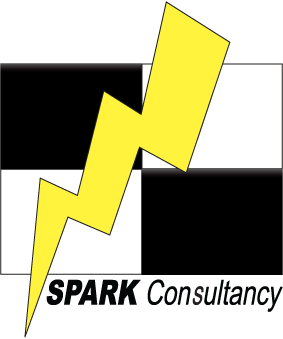
VOLARE CELEBRATES 25 YEARS AND SURPASSES THE MARK OF 77 THOUSAND VEHICLES PRODUCED
Sales leader in Brazil, Marcopolo’s minibus division is a pioneer in the manufacture of light commercial vehicles in Brazil
A national reference in the development and manufacture of light commercial vehicles for passenger transport, Volare, a member brand of the Marcopolo Group, celebrates 25 years of activities surpassing the mark of 77 thousand units produced, with leadership achieved in the Charter and School segments. In the supply to the Federal Government´s Caminho da Escola school bus program alone, about 20 thousand vehicles have been delivered, since 2007, to several Brazilian municipalities.
Created in 1998 with the objective of establishing a new standard for passenger transport in Brazil, initially in large urban centers, the brand has consolidated itself as a national leader reaching a 65% share in the Brazilian retail segment of mini buses and about 20% of the total Brazilian bus market. With a trajectory marked by innovation, technology and products tailored for different segments, in 2022, Volare expanded its participation in all segments of operation and registered 37.11% in growth with 4,659 vehicles sold.
Currently, the brand has a complete line of models, with configurations of 6 to 10 tons of gvw and versions with up to 53 passengers, which meet the needs and characteristics of passenger transport with efficiency, agility and robustness for segments such as charter, school, tourism, urban, rural and off-road.
“The greatest advantages of the brand, decisive for conquering market leadership, are innovation, superior operational performance, and diversification of the portfolio to anticipate market transformations and offer the operator, in addition to products for immediate delivery, tailor-made vehicles for the most diverse demands. Another strong point is the specialized and comprehensive network of concessionaires”, highlights Ricardo Portolan, Commercial Director of the Domestic Market and Marketing at Marcopolo.
In addition to the great success achieved in Brazil, the diversified line of vehicles is also recognized abroad. With two manufacturing units, one in Caxias do Sul (RS) and another in São Mateus (Espírito Santo State), Volare has more than 45 exclusive dealerships in the national territory. Abroad, it has a presence in more than 30 countries in Latin America, the Middle East and Africa with more than 20 service points.
According to Portolan, the prospect for Volare in the coming years is to continue increasing the market share of mini buses and seek out new markets, offering solutions that meet the expectations of operators and transport trends. “Our challenge is to maintain all this energy, taking advantage of the opportunities that the market has provided or that the company has been seeking”, he emphasizes.
And, in a scenario where the goal is decarbonization, Volare plans to continue developing products that meet this transformation of the industry and remain at the forefront of this commercial light vehicle market.
Successful trajectory
The brand was created in 1998 and became a prominent automaker with an international presence, with the primary advantage of developing functional, robust, and unique models. Since the first model launched, the A6, Volare has always innovated and introduced new trends such as the Escolarbus school bus in 1999, the first model designed for student transport that has become a reference for the national market. Other important innovations were the models with four-wheel drive, low floor, in addition to the use of automotive concepts, unprecedented in the bus industry.
In 2015, Volare launched Volare Access, the first low-floor mini bus with “Full Air” air suspension and rear engine. The new vehicle is designed to offer total accessibility, more comfort and safety for passengers and meet the growing national demand for collective, selective and school transportation. Volare Access was developed with the aim of being an important reference in accessibility, comfort and safety within its segment. The vehicle has been used in many different applications, from urban transport, including the school version, to the foreign market with the supply of several units to Dubai, in the United Arab Emirates.
In 2016, the brand launched Volare Cinco, an unprecedented model different from all other vehicles for transporting people in the Brazilian market, which offers passengers and drivers the highest standards of comfort, ergonomics, safety and efficiency. In the following year, innovated once again and launched Access E, the first Electrified Mini Bus produced in Brazil in partnership with BYD. The model was, at the time, the first in its class worldwide, with reduced length and weight and low floor, air suspension and zero emission of pollutants.
In 2018, on its 20th anniversary, Volare created a nomenclature for its products with the Fly and Attack lines. In 2019, it launched Fly 6, a mini bus model developed for the compact vehicle segment for transporting people, such as hotel pickup, transfers and tourism. The vehicle´s design was based on the innovative build concept, being developed from the inside out, focusing on comfort, sophistication, safety and the ergonomics of passengers.
In 2021, the brand presented a new configuration of the Fly 10 model, with the largest capacity on the market, for up to 38 passengers, reinforcing its position in relation to the others available for the segment. With a focus on developing solutions for the transport needs of operators and customers, the Fly 10 has conquered the market, especially in the Urban and Charter segments, by providing more comfort and space for passengers as well as efficiency, profitability and better TCO (Total Cost of Ownership). This model offers operators a great benefit in terms of reduced acquisition and operational costs, with great fuel savings, around 35% in relation to a conventional bus, in addition to lower acquisition costs, since it is up to 20% cheaper.
In this same year, Volare relaunched the New Attack line by introducing a special, much bolder and more modern design to the vehicles and combining important competitive advantages acknowledged by users, such as superior durability, passenger comfort, ergonomics for the driver, and the best cost-benefit ratio for the operator.

Recent Comments